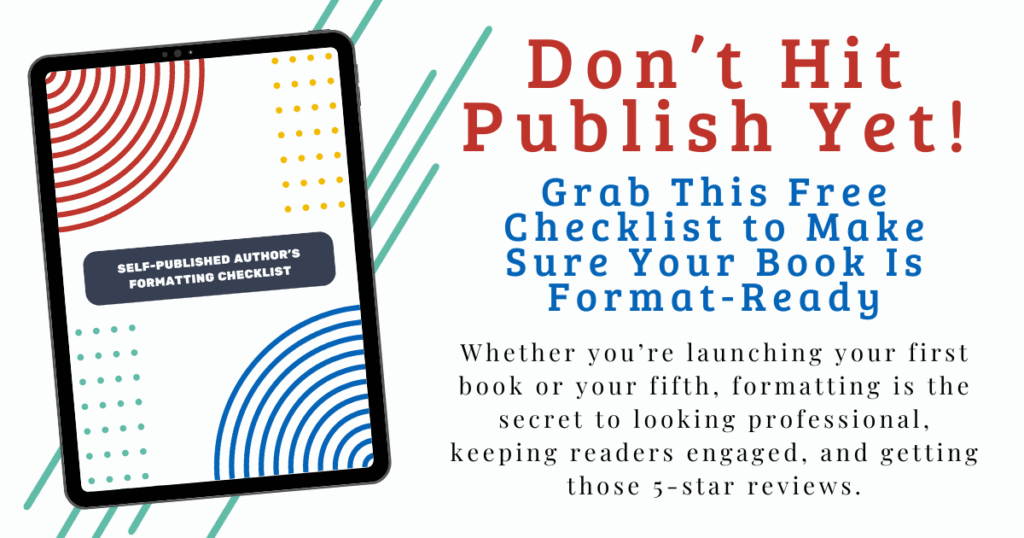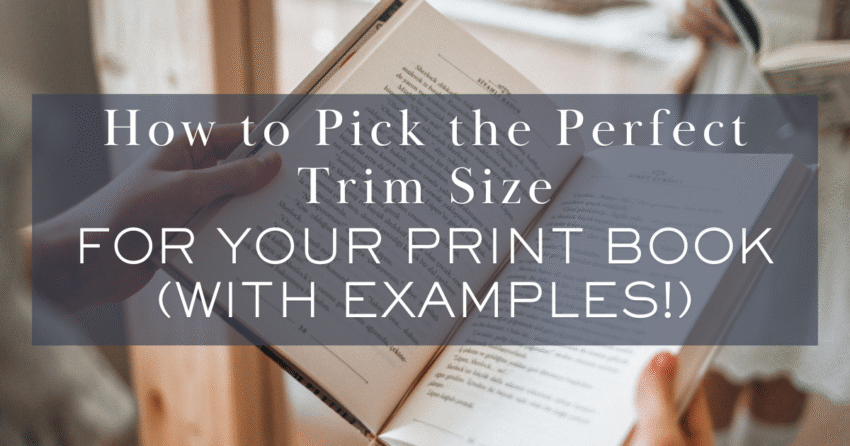When you hear the word “trim size,” your first thought might be…a haircut? But in the world of self-publishing, trim size refers to the dimensions of your book—and it’s one of the most important decisions you’ll make when preparing your print edition.
📏 What is Trim Size?
Trim size is the final size of your printed book after it’s been trimmed during the binding process. It affects how your book feels in the reader’s hands, how it looks on the shelf, how many pages it has—and yes, even how much it costs to print.
Choosing your trim size early in the formatting process is key. It impacts the design, the page count, and even how your book will be priced through print-on-demand platforms.
📚 The 3 Most Popular Trim Sizes (with Examples)
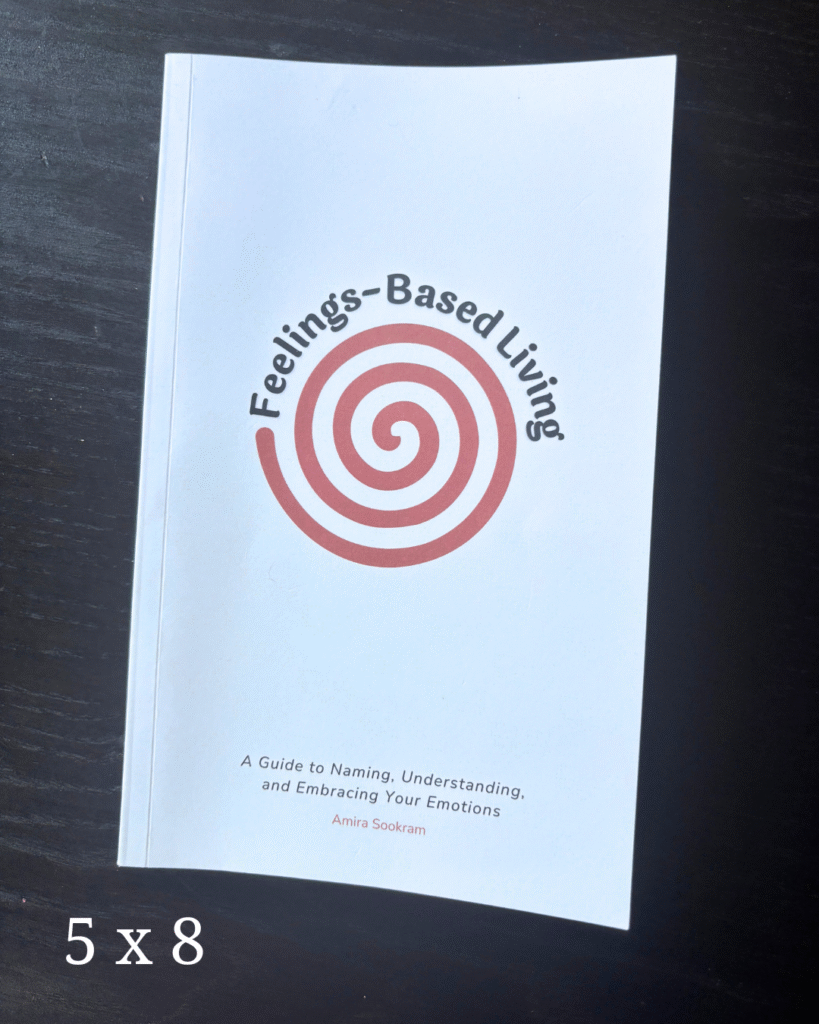
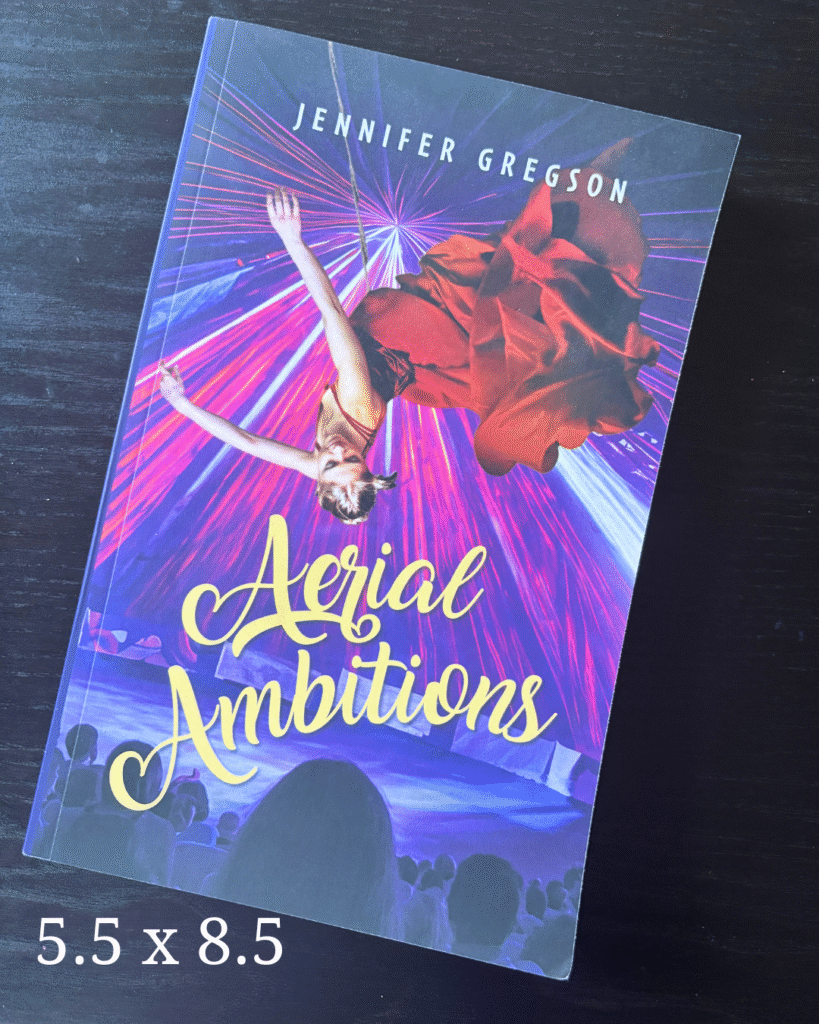
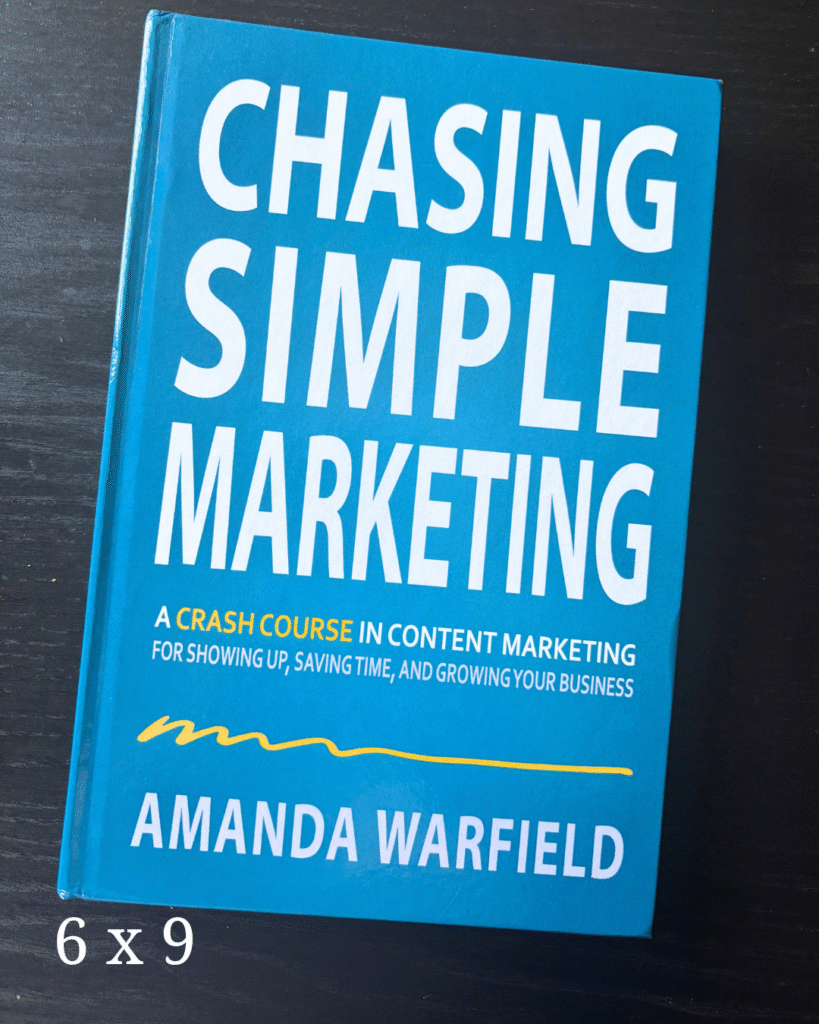
Here are the most common trim sizes for fiction and nonfiction books:
5” x 8”
Often referred to as a “pocket-size” novel. This trim size is great for:
- Middle grade and early YA fiction
- Nonfiction books under ~70,000 words
- Cozy genres that benefit from a smaller, more portable format
It fits nicely in bags and feels “just right” for shorter, focused reads.
5.5” x 8.5”
This is my personal favorite—and the size I use for all of my YA novels.
It’s:
- Perfect for young adult, women’s fiction, and general contemporary books
- Visually pleasing with more room on the back cover for your blurb
- A middle-of-the-road option for page count and cost
If you’re unsure, check the trim size of your favorite books in your genre—it’s likely many of them use this size.
6” x 9”
A popular choice for:
- Memoirs
- Nonfiction with charts, diagrams, or room for note-taking
- Fantasy or sci-fi novels that tend to run longer
This size is also ideal for hardcover versions of your book—it gives you space and a polished, professional feel.
🎨 Consider Genre & Aesthetic
Different genres often lean toward different trim sizes. Do a bit of research:
- Visit your local bookstore and check what size books in your category use
- Measure books you already own and love
- Think about how you want readers to experience your book—is it cozy and portable or bold and immersive?
Also consider series consistency: if you’re planning a multi-book series, you probably want all the books to match on your shelf. Readers do notice!
💸 Trim Size Affects Cost
Print-on-demand pricing varies depending on trim size and page count. Larger trim sizes can increase printing costs—especially if you’re publishing in both paperback and hardcover.
For example:
- A smaller book (like 5×8) typically costs less to produce
- A larger trim size (like 6×9) may cost more but allow fewer total pages, which can balance the pricing
Always check the print pricing tools on Amazon KDP, IngramSpark, or your preferred POD platform before finalizing your choice.
✍️ When Should You Decide on Trim Size?
You don’t need to think about this during your first draft—but once you’re preparing for formatting (whether DIY or hiring help), trim size needs to be locked in. It affects layout templates, page setup, and even design choices.
🤔 What Trim Size Should You Choose?
Ask yourself:
- What’s common in my genre?
- How long is my book?
- Do I want my series to have a uniform look?
- What aesthetic am I going for?
I write YA coming-of-age fiction and use 5.5 x 8.5, but my upcoming urban fantasy might push me toward 6 x 9 for those longer word counts. I’ll decide once I’m closer to formatting!
📣 Let’s Chat
What trim size are you using? What genre do you write in? Have you found any surprising favorites while researching?
Drop a comment or send me a message! And if you’re stuck choosing or can’t find the info you need, I’d be happy to help.
